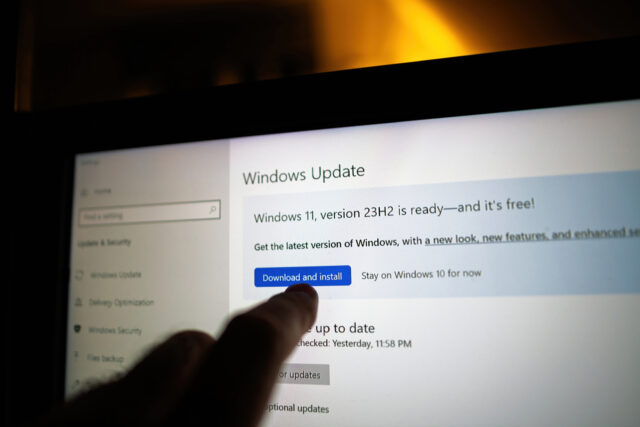UK government issues Windows 11 upgrade warning ahead of Windows 10 end of life

The UK’s National Cyber Security Centre (NCSC) is advising organizations to prepare now for the Windows 11 upgrade ahead of Windows 10 reaching end of support on 14 October 2025, if they haven’t already done so.
The advice highlights the importance of meeting new hardware requirements and securing devices ahead of the deadline.
The NCSC has released new configuration packs to help organizations adopt secure settings with less effort.
“At the NCSC we maintain recommended configurations for the main operating systems which help organizations to quickly deploy our recommended baselines, rather than needing to evaluate all the settings themselves,” NCSC Device Security Researcher Josh D, explains.
These updated packs are intended to deliver “real world security benefits” without adding unnecessary complexity.
Although Windows 10 remains widely used, some organizations have delayed moving on. As Josh notes, “Windows 10 still has a sizeable number of users, and some organizations are reticent to upgrade to Windows 11. A likely reason for this is very simple: to many people, Windows 10 works for them, and just doesn’t feel old. Thanks to its modern UI, users forget that it was released over a decade ago.”
Once October 2025 arrives, Windows 10 will no longer receive updates and will become legacy software.
Delaying the upgrade could lead to serious risks. Josh states plainly that “the security risks of not upgrading are significant.”
Once support ends, vulnerabilities are more likely to be exploited. “We saw this when a vulnerability in IE 6-11 was exploited after Windows XP support ended on 8 April 2014, and before it was patched on 1 May 2014,” Josh explains.
“And again in 2017, a vulnerability in unpatched versions of XP was exploited extensively by the WannaCry ransomware -- an attack which resulted in huge costs and damage globally.”
Windows 11 security features
One of the biggest barriers for some organizations is the new hardware standard required for Windows 11. “Whilst some Windows 10 users have taken heed of the deadline and are keen to upgrade, they find themselves unable to due to the new hardware requirements which Windows 11 introduced, such as TPM 2.0, UEFI and support for Secure Boot,” Josh explains.
These are not optional features. If even one is missing, systems cannot upgrade.
Rather than seeing hardware refreshes as a burden, the NCSC frames it as a security opportunity. “If your organization is using unsupported devices, the upgrade to Windows 11 provides excellent justification for purchase of new hardware.”
In other words, upgrading hardware should be seen as a way to fix long-standing weaknesses, not just a response to an operating system change. The PC market recently saw significant growth from companies buying new hardware in preparation for Windows 10’s EOL.
Windows 11 is designed to be secure by default, but the full benefits rely on compatible hardware.
“The new hardware is required to make use of some existing security features -- many of which were available in Windows 10 but required manual activation or configuration -- such as Bitlocker, Virtualization-Based Security (VBS) and Secure Launch,” Josh says.
In addition to improving access to features already available, Windows 11 introduces new ones. These include “Native passkey management, improvements to Windows Hello and changes to the default behavior of features like Credential Guard.”
According to the NCSC, outdated hardware limits an organization’s ability to protect itself. “Devices that don’t meet Windows 11 hardware requirements -- and are therefore unable to use the features that are needed to secure Windows -- remain fundamentally vulnerable to attack.”
The advice is clear: don’t wait. “We strongly advise any organization that isn't already on Windows 11 to prioritize migrating before Windows 10 becomes legacy in October 2025,” Josh says in conclusion.
What do you think about your organization’s readiness for the Windows 11 upgrade? Let us know in the comments.
Image Credit: Ifeelstock / Dreamstime.com
